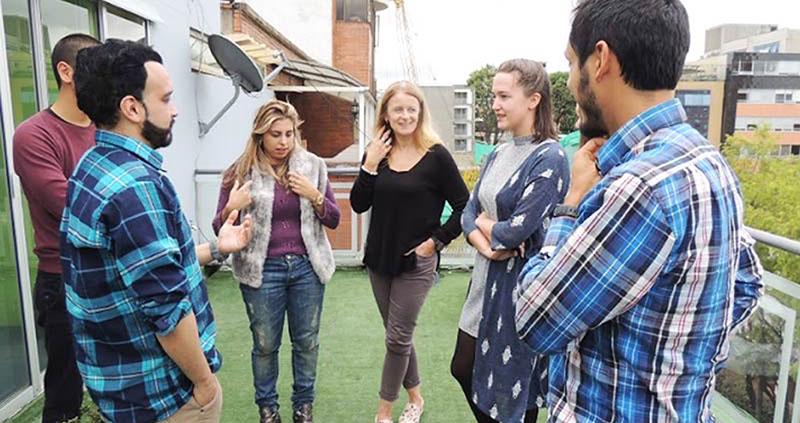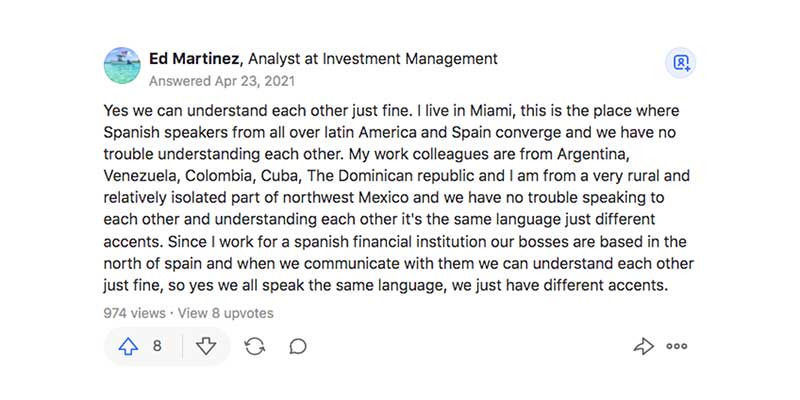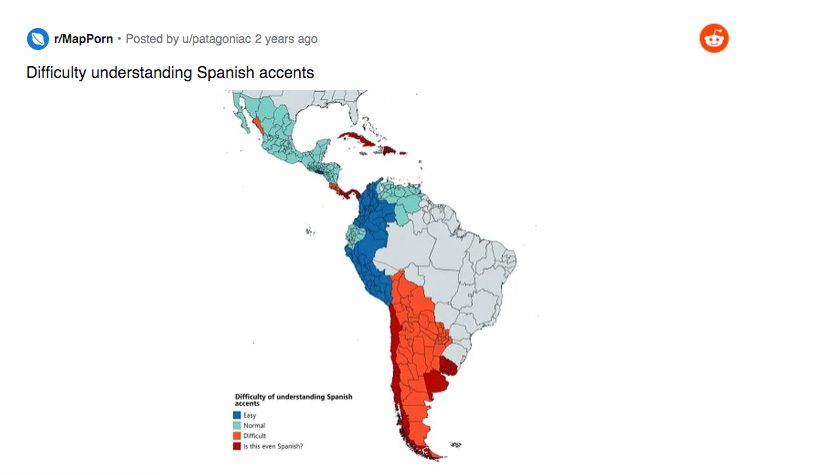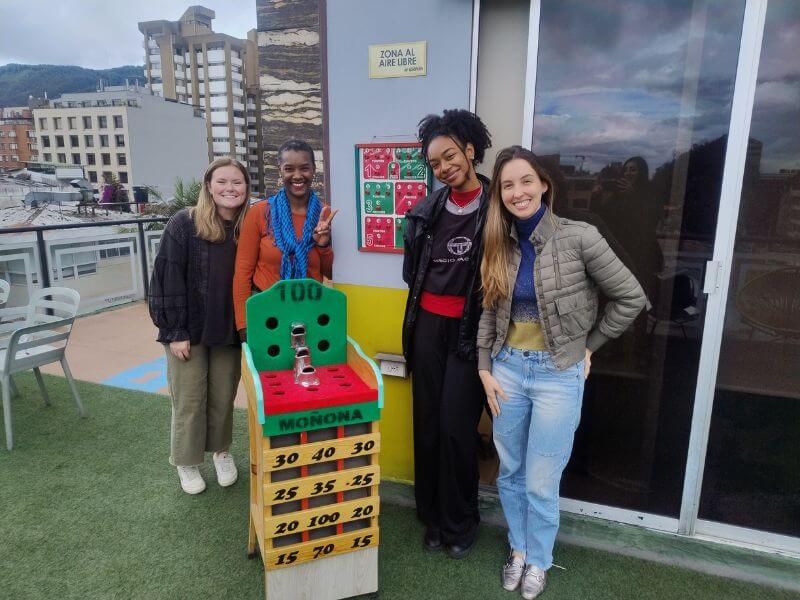Do all Spanish speakers understand each other?
New Spanish language learners ask the typical question once they learn the language.
Some people get concerned about learning a specific Spanish dialect and not understanding others.
People usually ask,
“If I learn Spanish in Spain, would I be able to speak and understand people when I travel to Latin America?”
“If I learn Spanish in Colombia, would I be able to speak with people from Argentina or Chile?”
“Would a Spaniard, Mexican, Cuban, and Colombian all conversing in Spanish understand each other?”
“Can all Spanish speakers understand each other?”
Generally speaking, yes:
- Once you learn Spanish, you can understand any Spanish dialect.
- We, native Spanish speakers, understand each other just fine.
Check out the answer from a Quora forum to someone asking the same kind of question:
However, there are many differences in terms of vocabulary, accent, and a few differences in grammar.
Like all native English speakers, British, Scottish, Americans, Canadians, Jamaicans, and others, it is the same thing!
Generally speaking, we understand each other, although we may have some difficulty with certain words that vary depending on the country.
For example,
- Apartment or flat: In Spain, they say “piso“, in Mexico they say “departamento“, and in Colombia we say “apartamento“. We all know the meaning, but we just choose the most common one in our country.
- Avocado: In Chile they say “palta“, and in Colombia we say “aguacate“
- Jacket: In Mexico they say “chamarra“, in Argentina they say “campera“, in Colombia we say “chaqueta“
And there are hundreds of examples like these. There is even a song written by two Colombian brothers about the difficulty of the Spanish language when it comes to the meaning and use of certain words.
Qué difícil es hablar el español (with English and Spanish subtitles!)
Spanish language around the world
You might be surprised by hearing facts like:
- Spanish is the second most spoken language as a mother tongue.
- The US is the second-largest Spanish-speaking country in the world after Mexico.
- There is a more extensive Spanish-speaking population in the US than in Spain.
- Spanish is spoken in 20 countries, including one in Africa.
- Almost 500 million people are native Spanish speakers.
With such many people speaking Spanish in different geographical regions, you can imagine how the language and its accents vary.
Check out the following map from Reddit explaining the difficulty of understanding Spanish accents depending on how fast people speak, their use of slang, and their pronunciation.
Colombian Spanish is one of the easiest!
Let’s hear these accents!
The best way to understand how different these accents are, and how easy or difficult they might sound, is by hearing them!
Check out these videos in which Spanish speakers from different countries explain the differences between our dialects and accents.
Spanish Accents Broken Down by a Latino—-Mexico, Argentina, Chile, Puerto Rico, Colombia, and Spain
Spanish Dialects Around The World: How Spanish Varies From Country To Country
The best way to learn the language and get familiar with its different accents and dialects is by practicing!
Watch videos, listen to songs from different Spanish-speaking countries, join language exchanges in your city where you can find other native Spanish speakers.
Even better to enroll in professional Spanish classes either online or in-person when traveling to any Spanish-speaking country.
If you want to improve your Spanish and know more about Colombian Culture, drop us a line!
We will be happy to tailor a specific program for you!
We hope to see you in Colombia soon!















